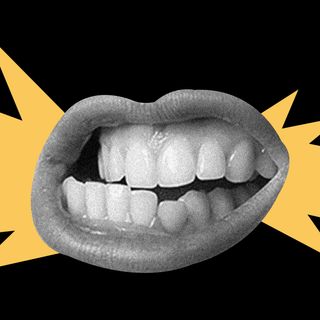In a small 2016 study, researchers found that babies who were left to cry for a set number of minutes before their parents intervened, not only led to them sleeping more, but also reduced the number of times they woke up during the night. But, what about all the adults who feel physically depleted after a crying session?
Experts believe that crying can be physically exhausting. “Crying is hard on the body. It takes a lot of energy and is something that takes over your whole body,” Lauren Bylsma, professor of psychology at the University of Pittsburgh, explained, adding that the level of fatigue one experiences also depends on how strenuously they cried. When someone cries, their heart rate increases and their breathing slows down. The more vigorous the crying, the greater the hyperventilation, which reduces the amount of oxygen the brain receives — leading to an overall state of drowsiness.
Related on The Swaddle:
Why Do We Cry When We Are Happy?
Besides simply helping us purge ourselves of stress-related hormones, crying also releases the production of endorphins, which are the body’s natural pain killers. Crying also soothes us by facilitating the release of oxytocin (also called the cuddle hormone). This induces a sense of calm and well-being, helping us sleep peacefully.
In addition, emotional crying, as a way to vent and release emotional trauma, also relieves our body of countless toxins and hormones like cortisol and prolactin, which contribute to elevated stress levels. Ridding our bodies of these chemicals by “having a good cry” can, in turn, help us sleep better.




